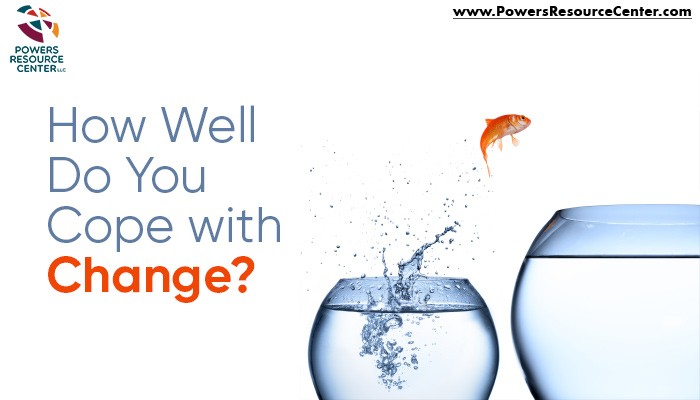Change is inevitable and even a positive thing in many cases. After all, you can’t grow if you’re standing still in your comfort zone. However, mental health professionals recognize that even positive change can create stress. But whether change is your own making or forced on you, it’s best to know how you will react – and have the recognition skills to manage yourself through the process of change. Will you find it exciting and welcome the challenge? Or will you drag your heels all the way? How does change affect your mental health?
This is a great change quiz I’ve used with clients to reveal how they cope with change. You won’t be scored at the end, but if you answer more true or more false to the following questions, your responses will provide a very clear picture on where you stand on coping with change.
T / F 1. I hesitate to make a change until everything is 100 percent right.
T / F 2. I never make changes unless they are forced on me.
T / F 3. Generally, I look forward to change as exciting and challenging.
T / F 4. I’m the kind of person who has to be totally fed up before I’ll make any changes.
T / F 5. When confronted with a change over which I have little control, I review the events and my behavior to determine if I could have done anything differently.
T / F 6. Rather than feeling responsible for negative changes that come out of nowhere, I take responsibility for my reaction to them.
T / F 7. I realize that sometimes even “good” changes have an underside that may bring unexpected problems.
T / F 8. I realize that a positive change in one area of my life won’t smooth out all my problems.
T / F 9. When coming to terms with a major change in my life, I attempt to keep other changes to a minimum.
T / F 10. When a change or transition occurs, I review how I have handled other such events in my life for lessons on how to cope with this event.
T / F 11. I look for other people who have undergone similar changes as models for how I might better cope with change in my life, such as a support group.
T / F 12. During a time of change, I ask for help and emotional support from those close to me, such as family members, reliable friends, and outside professionals.
T / F 13. After a life change, I step back from the situation to get perspective, rest, and practice self care in order to regain a sense of balance.
T / F 14. I try to look at the “big picture” of the change and acknowledge mixed feelings I might have.
T / F 15. Rather than blaming or feeling victimized, when I’m caught in a change (over which I have no control), I “pick myself up, dust myself off” and continue to move forward.
T / F 16. I don’t hold onto the “way things used to be,” as negative thoughts but instead move into “the way things are.”
T / F 17. In order to make a necessary change, I am willing to risk the disapproval and lack of support from others.
A conscious, developed awareness of our response to change can help us develop better coping strategies and achieve better mental well being. If the ways you cope with change in your life are causing you difficulties, or if your leaders or workforce need help coping with organizational change, we welcome you to reach out to us to discuss strategies that will help make your organization’s inevitable transitions much smoother. If you are really having difficulty dealing with your mental health in the face of intense change or unexpected events, it’s always best to seek support from a mental health professional if you are having depression symptoms.
Check out our list of the most popular leadership training topics.
Related Posts
-
Too Many Bosses, Not Enough Leaders
You got the title, the business card, maybe even the corner office. Well done! You have all the trappings of a leader. Around the office, people listen to you, other people report to you, you have a “seat at the table,” as they say. You’ve…





